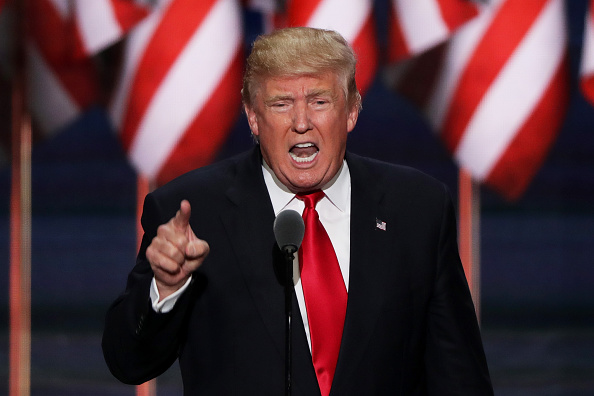Markets drop as US and China enter fierce war of words

A fierce war of words between China and the US broke out today after Beijing vowed to strike back over the 10 per cent tariffs the Trump administration is set to apply to $300bn of Chinese goods.
Read more: Recession warning lights flash red as US and UK ‘yield curves’ invert
China’s finance ministry said that the tariffs from Washington, which are due to come into force next month, broke a consensus reached between US President Donald Trump and his Chinese counterpart Xi Jinping.
This afternoon, China’s foreign ministry spokeswoman said: “We hope the US will meet China halfway” on trade talks.
Yet Trump hit back, saying on US radio station WGIR that any deal had to be on US terms. “China, frankly, would love to make a deal,” he said, “and it’s got to be a deal on proper terms. It’s got to be a deal, frankly, on our terms.”
The to and fro had the markets on tenterhooks, causing a sell off and then a rebound. In the US, the tech-heavy Nasdaq and the S&P 500 indices were both last down 0.1 per cent
US investors were cheered somewhat by much better-than-expected July retail sales which showed “a resurgent US consumer riding to the rescue once again,” said Michael Pearce, senior US economist at Capital Economics.
Germany’s Dax index was down 0.8 per cent, however, while the FTSE 100 was down 1.4 per cent as European investors maintained their gloomy outlook.
Investor jitters saw safe-haven assets prosper. The yield on 30-year US government debt fell below two per cent for the first time ever, falling to a low of 1.96 per cent before rebounding to two per cent.
A trade war has raged between the two sides since 2017, when talks to reduce the US deficit with China broke down. The Trump administration wants to reduce its trade deficit with China, which it thinks would bring jobs back to the US.
It escalated dramatically in May when Trump slapped 25 per cent tariffs on $250bn of Chinese goods and again at the start of this month when the new tariffs were announced.
Neil MacKinnon, global macro strategist at Russian bank VTB Capital, said: “The threat of global recession, increasing trade frictions, currency wars have to be high on the G7’s agenda.”
Read more: Donald Trump suggests meeting with Xi Jinping over Hong Kong and trade
“September might be the month that sees a significant shift in monetary policy by all the major central banks.”